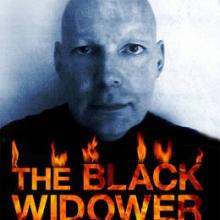
How this came about is the subject of Charles Lavery's excellent, if overlong, The Black Widower, a blow-by-blow account of the life and crimes of a man the author terms a sociopath - and if ever a man met that description, it's Malcolm Webster.
Webster was a conman extraordinaire, a male nurse with gentlemanly charm and good looks, who conned vulnerable 30-ish women into marriage with the expressed purpose of drugging them and arranging car crashes as a cause of death, but not before raiding their bank accounts and insuring them to the hilt. Death by fire was his modus operandi, a method fuelled by a childhood fascination with watching things burn. Indeed, his school chums nicknamed him Pyro. Even more extraordinary, both Webster's parents were police officers, his father one of the most senior officers in London.
Lavery, an investigative journalist based in Glasgow, draws a compelling picture of this family environment, with the possibility that Chief Superintendent Webster was some sort of nutcase himself, who may have also influenced Scottish police when they were investigating the suspicious death of his son's first wife.
Having got away with murder in 1994, Malcolm Webster tried it again in 1998 with Felicity Drumm.
They'd met in Saudi Arabia, where he worked as a sales rep selling medical software.
After an eight-month courtship they returned to Auckland, where they were married. But just as Webster was about to douse their crashed car with petrol, a drugged Felicity woke up when her father called on her cellphone. Saved by the bell, as they say, as was Webster's next victim, thanks to the persistence of the Drumm family and Auckland police officer Glenn Gray, and a lucky coincidence that readers will enjoy discovering for themselves.
The Black Widower could have easily been trimmed by 50 or so pages, as the author tends to repeat himself.
Even so, a great read, especially with its Kiwi connection, and Lavery's ignorance of Auckland's geography.
- Ian Williams is a Dunedin writer and composer.












